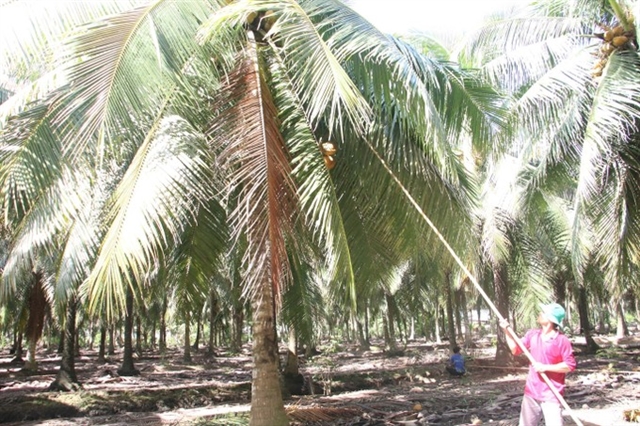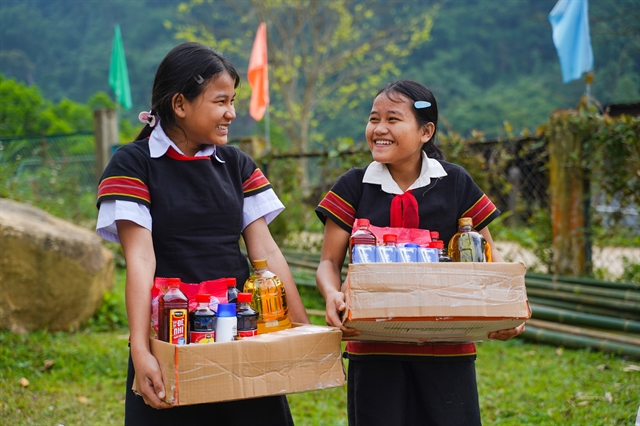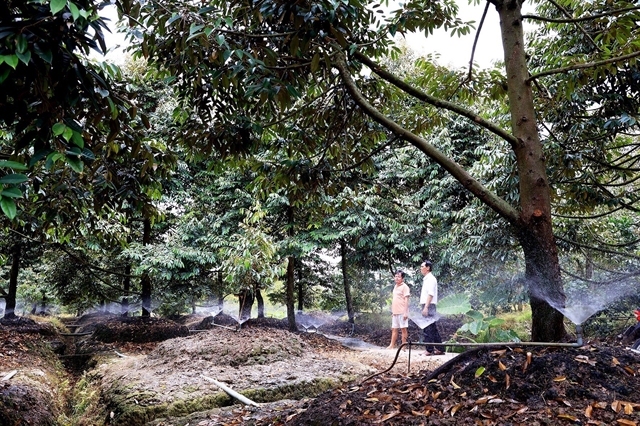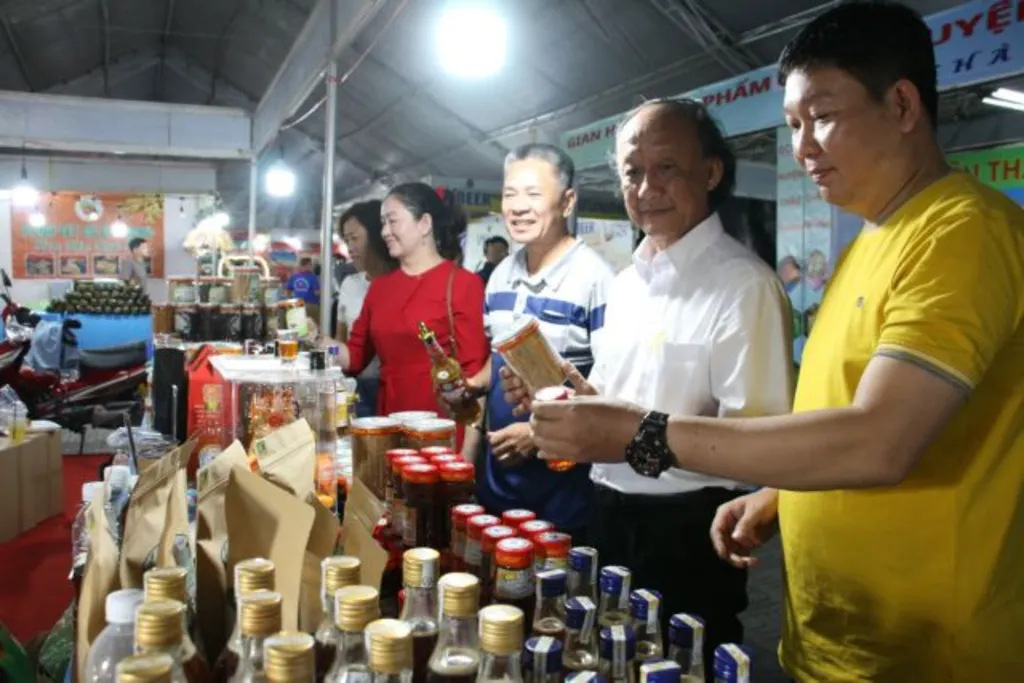 Society
Society

 |
| A durian orchard with an automatic irrigation system in Bến Tre Province’s Chợ Lách District. – VNA/VNS Photo Hồng Đạt |
BẾN TRE – Bến Tre Province is restructuring agriculture towards establishing concentrated farming areas to produce high-quality products and improve farmers’ incomes.
Trần Ngọc Tam, deputy chairman of the province People’s Committee, said agriculture had developed on a large scale with high yields, quality, efficiency, and competitiveness.
The province had established concentrated growing areas for key produce that have value chains and meet the requirements for making products for export, he said.
The People’s Committee had instructed the Department of Agriculture and Rural Development to draft plans to develop more concentrated growing areas for key produce.
The Cửu Long (Mekong) Delta province had encouraged agricultural co-operative groups and co-operatives to tie up with processing companies to develop value chains.
According to Đoàn Văn Đảnh, director of the department, the province has 67 co-operative groups, 78 co-operatives and four linkage groups that have developed value chains.
The country’s largest coconut growing province has 32 co-operative groups and 34 co-operatives that have developed value chains for 10,094ha of coconut orchards.
There are 18 co-operatives, seven co-operative groups and four linkage groups with tie-ups with 30 companies to grow more than 500ha of green-skin and pink-flesh grapefruit.
The province has encouraged farmers to switch to vegetables and fruits, livestock breeding and aquaculture on unproductive rice fields to earn higher incomes and cope with climate change, especially saltwater intrusion, in recent years.
Organic farming
The province has 25,023ha of farming areas that use organic or good agricultural practices (GAP) standards, according to the department.
They mostly grow coconut or fruits or practise aquaculture.
The province has 17,800ha of organic coconut orchards, or 23 per cent of the total coconut growing area.
Its coconut products are exported to highly demanding markets such as the US, Japan and the EU.
It aims to increase the organic coconut area to 20,000ha by 2025 and 30,000ha by 2030.
It will offer incentives to attract investments in agricultural processing to increase the added value of produce and outlets for them.
It has a diverse range of farming conditions with freshwater, brackish water and saltwater areas.
But most farms are small and lack the resources to invest in advanced farming methods, according to the department.
The province has encouraged farmers to join co-operatives and co-operative groups to increase their scale and secure stable demand for their produce and income.
Phạm Mạnh Hà, who owns a two-hectare coconut orchard in Thạnh Phú District’s Thới Thạnh Commune, is a member of a local organic co-operative that secures outlets for his harvests.
It had linked up with companies for the purpose, and this safeguards members from price and demand volatility, he said.
He earns an average of VNĐ120 - 150 million (US$4,800-6,000) a year.
More and more farmers in the province have begun to adopt high-tech methods to breed shrimp and earn higher profits.
Lê Văn Sấm in Thạnh Phú District’s Thạnh Hải Commune is one of the province’s most successful shrimp farmers and uses high-tech methods with multiple ponds for breeding and treating wastewater.
His ponds are installed with oxygenation equipment, anti-sunlight nets and plastic sheets on the beds.
“This breeding method offers advantages over traditional methods like controlling the quality of water and managing diseases. The breeding success rate is 90 per cent, and two to three crops can be harvested a year.”
He has 40ha and harvests 70-90 tonnes of shrimp a year to earn profits of VNĐ30-50 billion ($1.2-2 million).
Bến Tre plans to expand its high-tech shrimp breeding area from 3,110ha now to 5,000ha by 2030, according to the department.
To increase the efficiency of aquaculture, it offers advanced techniques to manage shrimp and other species and protect the environment.
It has created digital agriculture data and origin traceability for agricultural produce, and installed 14 automatic monitoring stations in Ba Tri and Thạnh Phú districts to check water quality for aquaculture.
OCOP products
Bến Tre aims to develop more products under the country’s “One Commune- One Product” (OCOP) programme to exploit the advantages its rural areas possess and improve incomes there.
 |
| People buy Bến Tre Province’s speciality products and those recognised under the national “One Commune – One Product” (OCOP) programme at a fair held in Bến Tre Province in January. — VNA/VNS Photo Chương Đài |
It has more than 250 OCOP products rated between three and five stars, including four with five stars.
The four are cacao coconut candy, panda-durian- coconut candy, ginger coconut candy, and durian coconut candy, all produced by the Đông Á General Trading and Manufacturing Limited Company.
Many of the OCOP products are made from province specialities such as coconut, green skin and pink flesh grape fruit, durian, rambutan, clean rice, and mud crab and include jams, cakes and tourism products.
The province wants 20 per cent of all co-operatives to have at least one OCOP product this year. – VNS